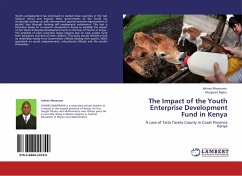This study is an analysis of the Zimbabwe Ordinary Level History Syllabus 2166. The focus was on the problems of its implementation in the Mashonaland East Province of the country. It critically examined the innovation process association with the formulation, development and implementation of this curriculum change project with a view to determining the problems bedevilling its successful operationalisation in the secondary schools in that province. To that end, the research established that the History Syllabus 2166 was formulated against the background of Zimbabwe s transition from Capitalism to Socialism. Designed with a socialist ideological framework, the syllabus was initially meant to facilitate this transition. Due to the political significance of the syllabus, the government wanted the implementation process carried out urgently. Consequently, the architects of the syllabus found out that they had very little time to consult widely with the relevant stakeholders during the period of formulation. There had been no pilot-testing or prior preparations made in the production and distribution of adequate, relevant teaching and learning materials.
Hinweis: Dieser Artikel kann nur an eine deutsche Lieferadresse ausgeliefert werden.
Hinweis: Dieser Artikel kann nur an eine deutsche Lieferadresse ausgeliefert werden.








